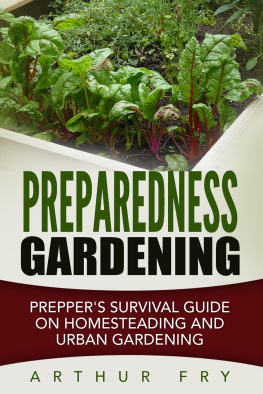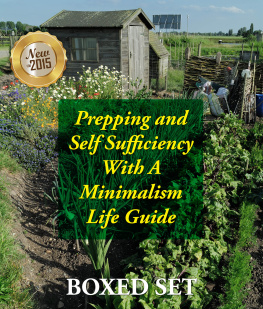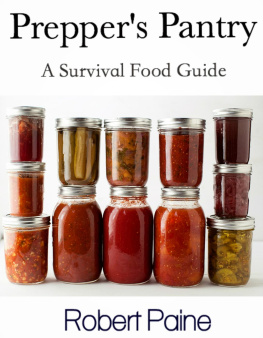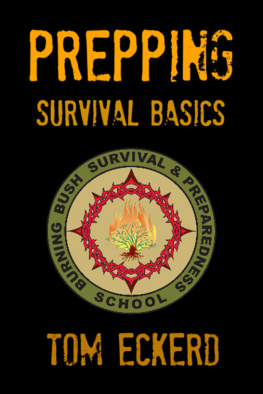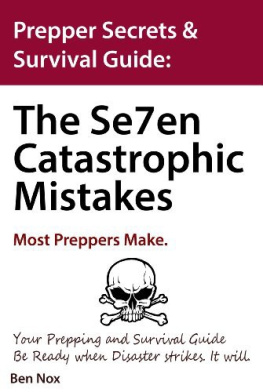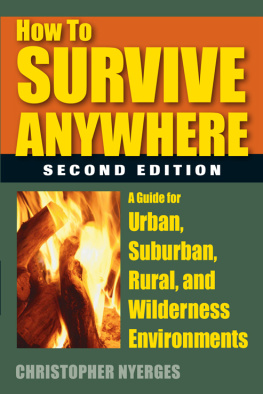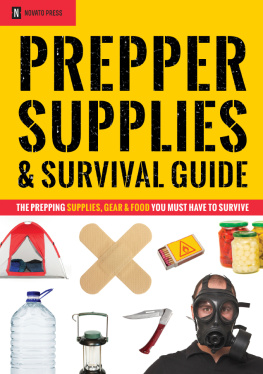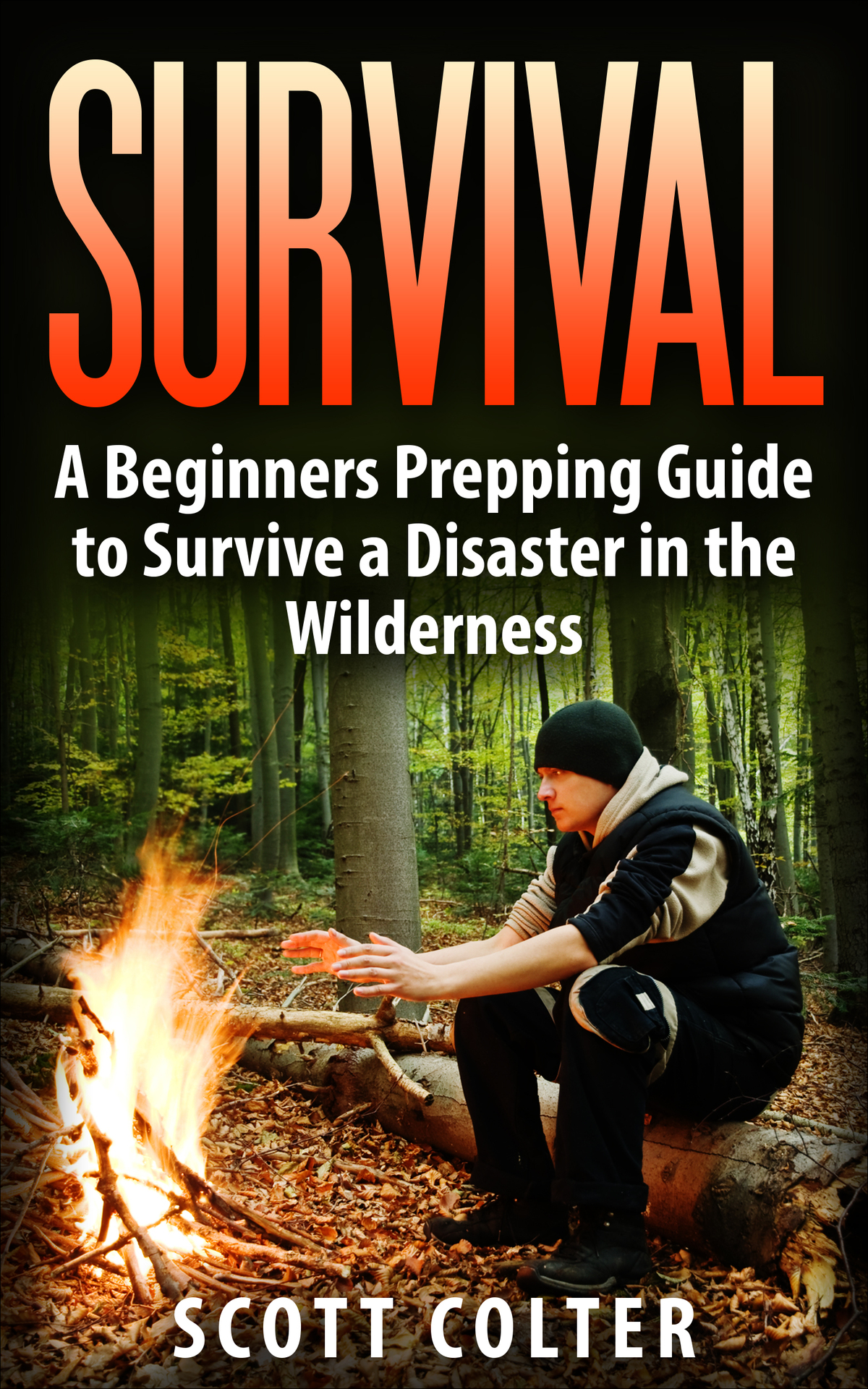Introduction
Our continued survival is often taken for granted. When disaster strikes we are forced to take responsibility for our own survival to find our own resources and keep ourselves alive. It would be a safe wager to bet that most individuals do not prepare for the worst, or teach themselves to deal with the adversity posed by potential hazards.
In most aspects and areas of our lives, it is considered sensible and adult to plan ahead. People carefully construct five-year financial plans. Couples consider when they would like to have children and save money towards their pensions. Even as a child and a teenager you must think about what subjects you might want to learn and what career you might want to pursue. Yet the most vital and basic of all future preparations the skills and items that would ensure our survival if a disaster were to strike, are left woefully neglected by almost everybody. A prepper, however, doesnt think like the rest of the populace they know that it is wise to learn these skills that other people wont either consider. It is not about surviving a zombie apocalypse, or creating a secret bunker, but recognizing the importance and fragility of your own life. We all want to survive disasters, but only a prepper takes the necessary steps to do so.
By reading this eBook you take the first step from being helpless in a disaster to helpful. This eBook takes you into the world of the prepper, with a specific focus on how to survive in the wilderness.
In the first chapter of this eBook, learn the basic psychology of survival, the mindsets and attitudes you need to develop if you were to even think about surviving the wild. In the second chapter, become acquainted with the various hazards that you may face and how they are classified. In the following chapter, be trained to prepare your very own survival kit, containing the best items to ensure your survival in any situation. Finally in the fifth chapter get to grips with your basic survival skills by learning how to live in the wilderness. Discover how to find water, how to forage for food, how to build a shelter, how to kindle a fire, how to navigate using natural signs and how to treat injuries and wounds.
Chapter 1 Psychology of Survival
Staying Calm & Focused
All of us have seen people turn manageable problems into full overblown disasters by lacking the calm and clarity to deal with an issue gracefully. On occasion, everyone one of us has probably had a moment where we snapped, losing our cool and acting in ways that we regret.
Whilst these incidents are looked down upon by our peers, in most circumstances, apart from wasting our time and irritating the people around us, these minor tantrums do us little long-term harm.
However in a disaster situation where you are pressed to the very brink of survival, keeping your mind steady and focused is paramount to getting out of trouble alive. You simply cant lose your cool you wont survive. There are no safety nets.
Therefore to master survival skills, you need to master yourself. Instead of taking the attitude that your emotions are wild, uncontrollable phenomena that cause you to act in irrational ways you need to discipline yourself to effectively manage your emotions.
This isnt the same as denying your feelings when you are stressed, you are stressed. When you are angry, you are angry. Nonetheless, you can train yourself to act efficiently during anger or other unhelpful emotions and reach levels of inner focus that penetrate beyond your surface emotions.
Ultimately, the first step to mastering your emotions is to embrace the perspective that maintaining a healthy state of mind is a skill you practice rather than the result of external factors. If you concede that external factors determine your state of mind than when the going gets rough, you will never succeed.
You might as well give up now you dont have the grit to go on further. If you think that you are not a victim to your own emotions than you can start to practice emotional control. Recognize when you are feeling an unhelpful emotion and learn to soothe yourself by cultivating positive emotions and constructive habits to counteract that emotion. If you practice this skill at every opportunity in which emotional discontent arises, eventually you will learn to deal with your emotions skillfully.
In addition to developing emotional calm, a prepper needs to overcome their inherent biases that everything will be alright, often called a normalcy bias. Life in modern western society is, for most western people, rather comfortable. Although some of us are unfortunate and suffer from personal tragedies and physical accidents, most pass through the majority of our lives, at least as of yet, with few genuinely life-threatening hazards thrown our way.
The fact that we have reached this current period of time relatively unscathed often makes us ignorant and ill-prepared for the future. People become complacent and arrogant, assuming that because few ill-fortunes have occurred in the past, few or none will occur in the future. If we do face life threatening challenges, most people fail because they never took the time in their comfortable lives to learn how to deal with difficult situations. They do not take an interest in their own fitness, which is essential to any survival situation. They do not learn to manage natural and industrial disasters, even if they are living in geographically susceptible areas.
A prepper however, is different. A prepper looks to the future with an unbiased eye and recognizes the possibility of misfortune. A prepper stockpiles and trains to whatever degree necessary to ensure they can survive when disaster strikes all because they have the gift of foresight. Never assume everything is going to be alright. Prepare!
Self-Sufficiency
Another key aspect of the prepare mindset is self-sufficiency. In everyday life, it is not always inherently bad to learn to ask for help and co-operate with your peers it entirely depends on the situation and the people involved.
However, in a disaster situation the normal flow of life becomes extremely distorted. The people you are used to relying on spouses, siblings, friends, parents, authorities and emergency services might all be distanced from you or endangered themselves.
If you are alone in the wilderness, there is no guarantee that you will be able to contact anyone to help you. No police officer to protect you or no doctor to treat your wounds. You have to learn, whenever possible, to deal with your problems yourself. This doesnt mean, however, that you must become an island onto yourself.
Instead take the perspective that in everyday life, you try to fix your problems by yourself first. Stop relying on other people just because you are too lazy to find out the solution or because it is merely convenient. If you need help, get help. If you can feasibly and reasonably deal with a problem yourself, deal with that problem yourself, period.


